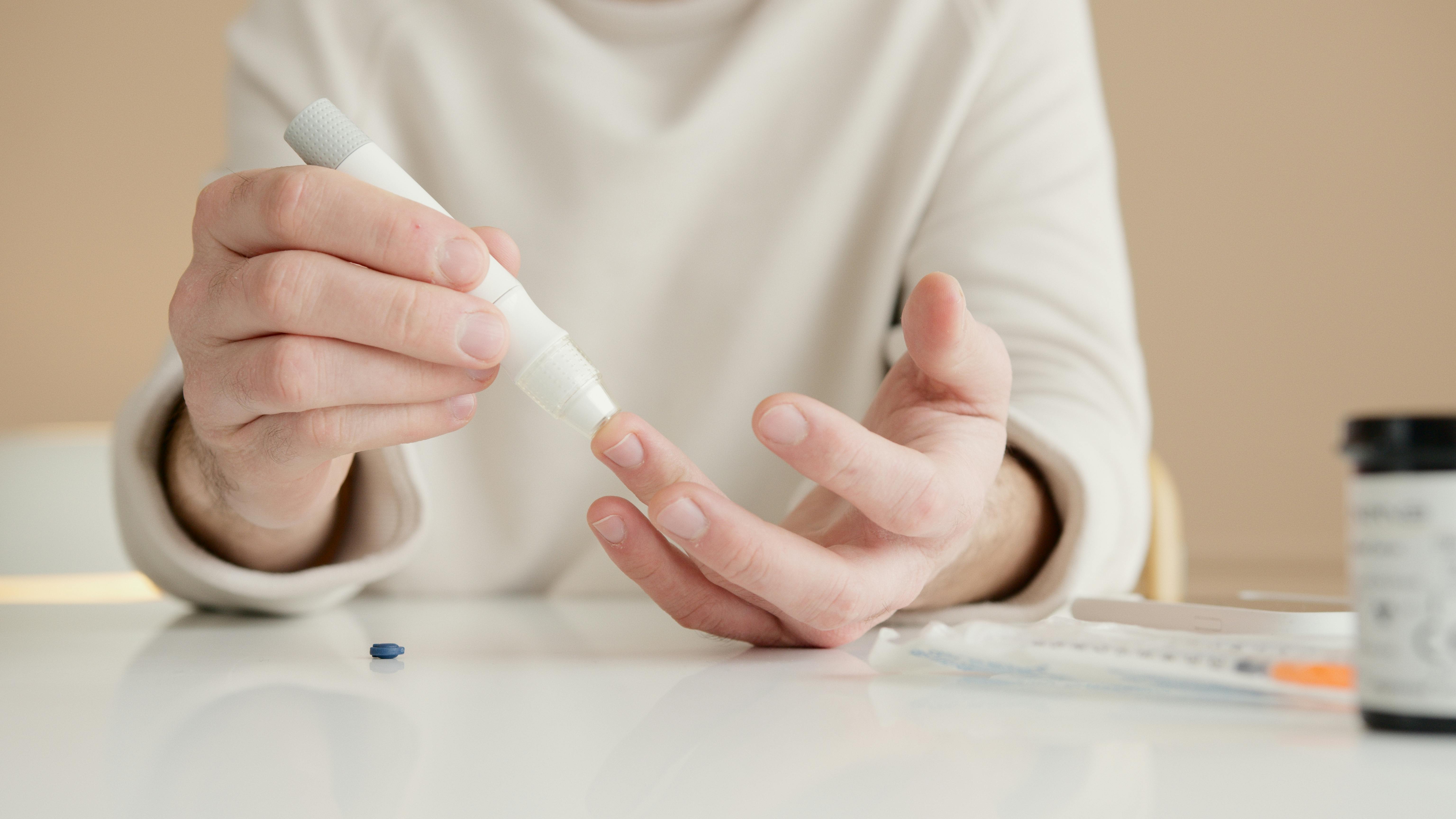
<iframe width="560" height="315" src="https://www.youtube.com/embed/uVQNMsUfjg8?si=MAAFzWhzYLAXopr3" title="YouTube video player" frameborder="0" allow="accelerometer; autoplay; clipboard-write; encrypted-media; gyroscope; picture-in-picture; web-share" referrerpolicy="strict-origin-when-cross-origin" allowfullscreen></iframe>
Diabetes is a collection of diseases that affect your metabolic system. The condition causes your blood sugar, or glucose levels, to remain chronically high, which can damage your overall health.
Your body creates glucose from the foods you eat. Insulin, a hormone produced by the pancreas, helps shuttle glucose into cells to be used for energy. When you have diabetes, you either don’t produce insulin or the insulin you do produce isn’t used properly, and as a result, your blood sugar levels stay high.
Type 1 diabetes is an autoimmune disease usually diagnosed in youth. Your immune system falters and attacks cells in your pancreas that produce insulin.
Type 2 diabetes occurs when your body doesn’t make enough insulin or doesn’t use what you do make properly, causing insulin resistance. Usually diagnosed in middle or older age, younger people are increasingly being diagnosed with the condition.
Gestational diabetes affects pregnant women. It has many of the same characteristics as type 2 diabetes but usually resolves after your baby is born. It does put you and your child at greater risk of developing type 2 diabetes later in life.
Another condition known as prediabetes causes your blood sugar levels to remain high, but not high enough to be classified as diabetes. If you have untreated prediabetes, you are at increased risk of developing type 2 diabetes.
Chronically high blood sugar levels can lead to serious symptoms. Symptoms usually appear quickly if you have type 1 diabetes, but may be more subtle and gradual in people with type 2 diabetes.
They include:
Many with diabetes also find that open wounds and sores are slow to heal. Men can experience erectile dysfunction, while women can develop more frequent urinary tract and yeast infections.
If you have any of these symptoms, it’s important to get checked out immediately. Untreated diabetes can lead to major complications, including kidney disease, nerve damage, and heart disease.
Daily insulin therapy through at-home injections or an insulin pump will likely be necessary if you have type 1 diabetes. Type 2 diabetes can be treated with lifestyle changes, such as improved diet, exercise, quitting smoking, and weight loss. If a healthier lifestyle isn’t effective at controlling your blood sugar, your medical team at Southwest Family Physicians will find you the proper medication regimen to improve your condition.
For those with prediabetes, prevention usually requires some lifestyle changes. The weight loss team at Southwest Family Physicians can help you achieve your weight goals through group classes, coaching, counseling, and medical visits.
Schedule a diabetes evaluation at Southwest Family Physicians online or by phone to prevent long-term health complications.

On-site lab work for your convenience—fast, accurate results to support timely care decisions.

Safe and effective treatment for hormone imbalances related to age, health, or identity.

Respectful, affirming care that includes hormone therapy, wellness exams, and mental health support.

Comprehensive care and support for preventing, managing, and treating diabetes.

A proactive, preventive visit designed to keep you feeling your best year-round.

Time-tested Eastern medicine used to relieve pain, reduce stress, and support the body’s energy balance.

Therapeutic massage for pain relief, relaxation, and overall wellness.

Comprehensive care for every stage of a woman’s life—including reproductive health, annual exams, and hormonal support.

Nurturing care for children of all ages, focusing on wellness, growth, and development.

Personalized, preventive care for your everyday health needs, from checkups to chronic condition management.

Supportive, confidential therapy for individuals, couples, and families navigating life’s challenges.

Hands-on care by osteopathic physicians to treat pain, improve mobility, and enhance the body’s natural ability to heal.

Doctor-supervised programs tailored to your goals with sustainable, evidence-based strategies.

Functional recovery and movement-based therapy for injuries, surgeries, and chronic pain.

Compassionate support and hormone-balancing treatments to ease the transition and improve quality of life.